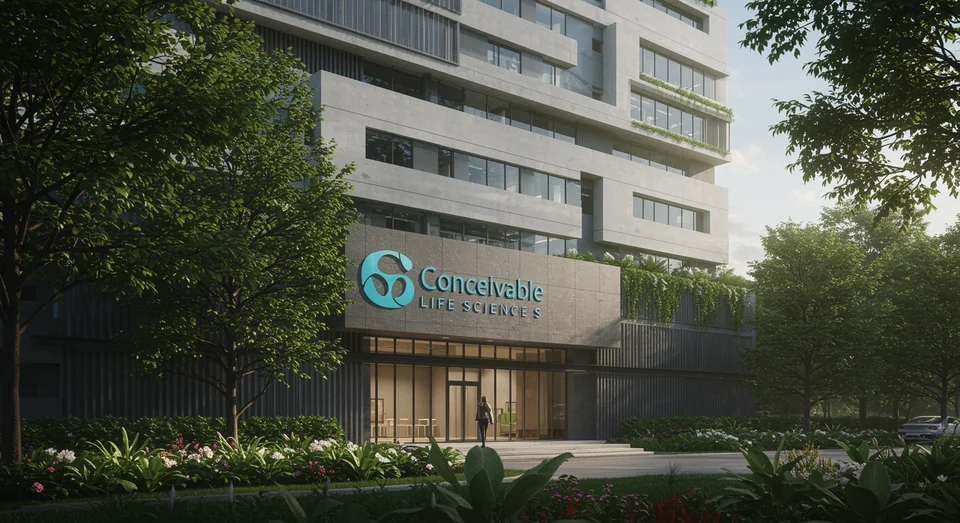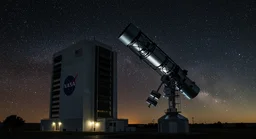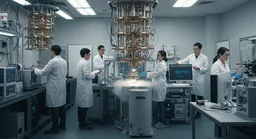Robots Deliver First Baby Conceived Through Automated IVF by Conceivable Life Sciences
306 views
A New Era in Fertility: Robots Deliver First Baby Conceived Through Automated IVF
In a historic breakthrough that bridges the realms of artificial intelligence and human life, a baby has been born via an IVF procedure largely orchestrated by robots. Conceivable Life Sciences, the pioneering company behind this technological marvel, has introduced a system that could redefine reproductive medicine. Employing AI-driven precision and robotic dexterity, the automated process performed intracytoplasmic sperm injection (ICSI)—a delicate technique that involves injecting a single sperm directly into an egg. The achievement marks a profound milestone, not only for the parents but for the future of fertility treatments worldwide.

The automated IVF system, designed to minimize human error and protect the integrity of fragile eggs, represents a bold leap forward in the field. Traditionally, ICSI has relied on the expertise of embryologists, whose steady hands and sharp eyes perform the intricate task under a microscope. However, this new approach leverages artificial intelligence to select optimal sperm and embryos, while robotics execute the precise injection with remarkable consistency. Human oversight remains essential, initiating each step and ensuring the equipment functions as intended, but the process itself is largely automated.
The procedure unfolds in a sequence of steps that blend cutting-edge technology with biological finesse. First, AI algorithms analyze sperm samples to identify the healthiest candidates, using criteria such as motility and morphology. Then, a laser immobilizes the tail of the selected sperm, preparing it for injection. Finally, a robotic arm performs the delicate task of inserting the sperm into the egg, guided by pre-programmed instructions and real-time imaging. While this automated method took longer than its manual counterpart, it successfully fertilized four out of five eggs, offering proof-of-concept for future scalability.
The implications of this innovation are as vast as they are profound. Experts in reproductive medicine see the potential for improved IVF success rates, as the standardization of procedures could reduce variability and errors that sometimes hinder manual methods. Moreover, automation might lower the overall cost of fertility treatments, making them accessible to a broader demographic. For couples struggling with infertility—a condition that affects millions globally—this could be a game-changer. Yet, the scientific community remains cautious, emphasizing the need for extensive studies to confirm the safety and efficacy of automated ICSI before it can be widely adopted.
What sets this development apart is its promise of accessibility. In many parts of the world, IVF remains prohibitively expensive, often requiring specialized equipment and highly trained personnel. By automating key steps of the process, Conceivable Life Sciences envisions a future where fertility clinics in underserved regions could offer affordable and reliable treatments. The ultimate goal, as outlined by the company, is "end-to-end automation" of ICSI, where robotics and AI handle every stage of the procedure—from egg retrieval to embryo transfer—while human experts oversee operations to ensure quality control.
While the achievement is undeniably groundbreaking, it also raises questions that extend beyond the laboratory. Ethical considerations loom large in the realm of reproductive technology, especially when AI takes on roles traditionally reserved for humans. Concerns about the potential for misuse, such as the selection of embryos based on genetic traits, underscore the need for stringent regulations. Furthermore, the emotional and psychological dimensions of fertility treatments—often deeply personal and fraught with anxiety—may evolve in unexpected ways as automation becomes more prevalent.
The birth of this baby, however, offers a glimpse into a future where the boundaries between technology and biology blur in extraordinary ways. It serves as a reminder that innovation, when guided by thoughtful oversight and ethical principles, has the power to transform lives. For Conceivable Life Sciences, the achievement is not merely about technological triumph; it is a testament to the resilience of human hope and the relentless pursuit of solutions to complex challenges.
As the scientific community continues to explore the possibilities of automated IVF, one thing is clear: this milestone is not an endpoint but a beginning. It opens the door to conversations about how technology can complement, rather than replace, human expertise in medicine. It challenges us to consider how advancements in robotics and AI might reshape the future of healthcare, not just in fertility but across disciplines. And, most importantly, it reminds us that every innovation—no matter how sophisticated—ultimately serves a deeply human purpose: the creation of life itself.
In the years to come, as automated systems evolve and refine their capabilities, the promise of accessible and effective fertility treatments may become a reality for countless families. For now, the birth of this child stands as a beacon of possibility, illuminating the path forward in a field where science, technology, and humanity converge.





























